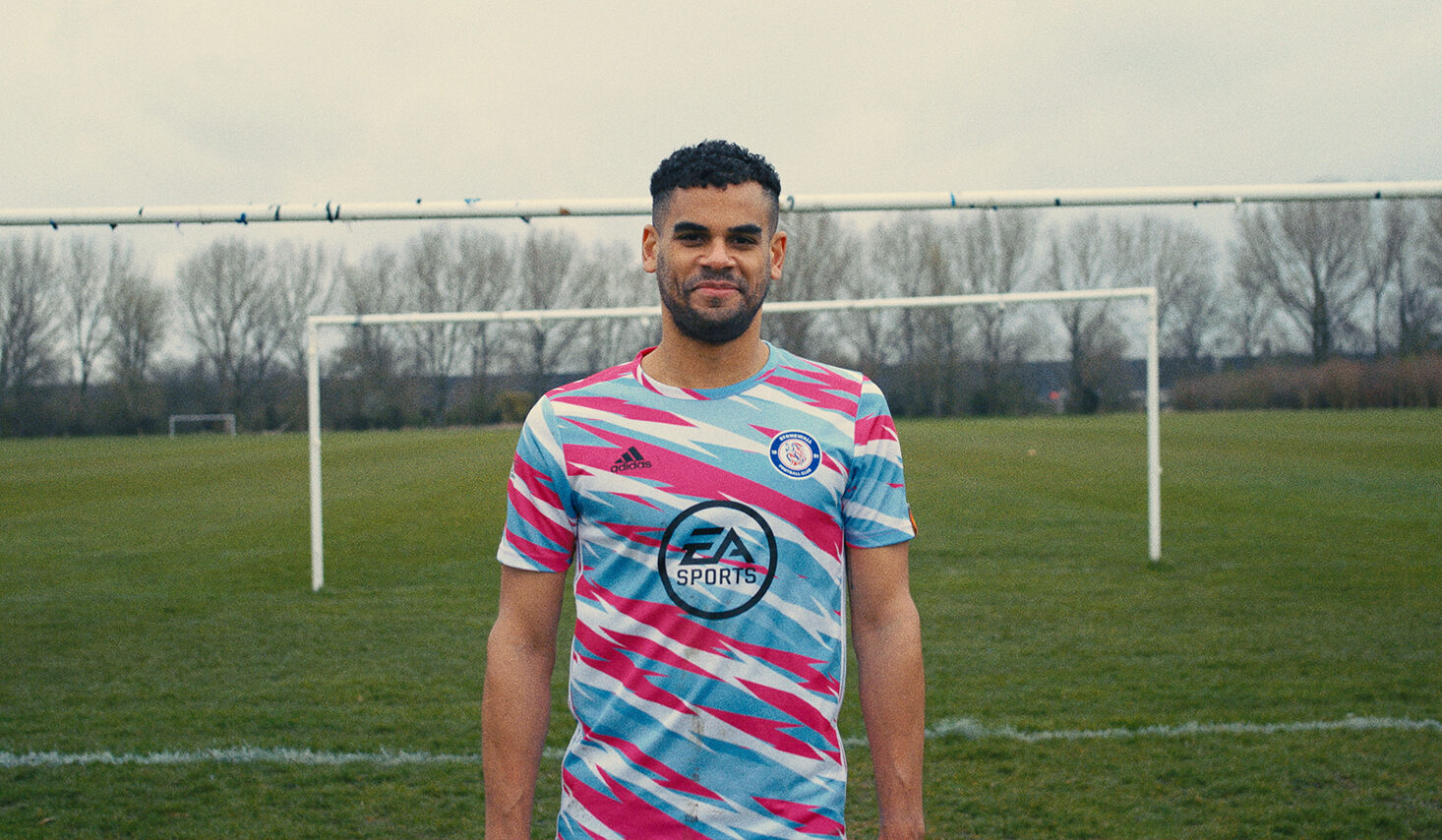
The Rainbow Laces campaign unites everyone who cares about sport and fitness to create a world where every LGBTQ+ person can thrive wherever they train, play or watch sport. In 2021, Stonewall, supported by Voltarol, refreshed and re-energised the Rainbow Laces campaign, adding the “Lace Up & Speak Up” message to amplify the message of inclusion. You can read more about the Rainbow Laces campaign, or order your own pair of Rainbow Laces here.
I first got into football from the age of six. Growing up in London, it was a sport that everyone got stuck into. We would spend hours playing outside with other kids on the street because we didn’t have much else to do. It was cheap and cheerful and the sport was accessible to a working class kid like me.
Everything changed when I started playing football as a teenager in the adult league. There was this open sense of camaraderie and belonging with other players. I didn’t join the team until my second year at university, but things were different. The banter was different – the jokes, the lines, the comments and team was not accepting of anyone who was different. In the younger years, you want to be part of that community so you’re willing to put up with things, but, as you start to get older, you come to realise that your identities have more points to them. I was outed while at university and I started to see that kind of separation between who I was before and after. I wanted to explore who I was rather than exist in a space where everyone is a similar version of each other. People grow up and they start being who they believe they are.
I had people coming up to me saying they had lost respect for me. This alone was bizarre, but harder to process when you’ve been in a team where you’ve trained and won a league title together. Everything suddenly flipped. It was as if as soon as they found out something that didn’t “fit” the image, they didn’t like you. I had a few years of trying to fit in as a working-class LGBTQ+ person in a very middle-class environment, but my perceptions differed from them. I had been in and around London in my life which bled into an identity crisis as I tried to be like them. In the end, I decided to be myself.
I started playing professionally as a teen and ended up playing non-league football with Stonewall as I’ve gotten older. Back in the day, 10 or 11 years ago, attitudes were very different from what they are now, but we are seeing progress. Rainbow Laces launched in 2013 and it was a bold small step in the right direction. Initially, I was sceptical as not many sports clubs picked it up to start with. However, it all changed between 2017-18. We saw a huge transformation where companies were putting on events such as Brighton Pride and getting ex-pros down to share their support. Troy Deeney campaigned around football’s inclusivity and racism in the sport. Jordan Henderson, the captain of Liverpool who won the Champions League, began posting about the support of LGBTQ+ fans, encouraging them to games and making sure that they’re proud to be who they are. Moments like this are instrumental and it leads to a knock-on effect of change.
Now, we’re starting to see fans policing language more. On social media, we’re seeing threads calling out homophobia and racism, which never really happened before. This visibility also ties into the courage of players coming out. Swedish footballers Anton Hysen was probably the first to come out several years ago. Robbie Rogers played in League One and moved to LA Galaxy. More recently, Josh Cavallo, the Australian player, came out too, so you’re starting to see it at all levels. Alongside this, the media have gotten better at reporting on moments like this.
Every conversation takes us one step closer to achieving our ambition; to make sport everyone’s game.
While there will always be a need for improvement, this growth makes a difference. When I first started out in LGBTQ+ football, we had 10 football teams. There are Nottingham Lions, three in London, one in Newcastle, and one in Scotland as well. In London alone, there are another 13 to 14 teams that offer incredible opportunities for LGBTQ+ players and athletes. However, moving ahead, conversations need to be had to make people aware of campaigns such as Rainbow Laces and other LGBTQ+ charities which calls upon sports people everywhere to lace up, speak up, and to tackle LGBTQ+ inclusivity in sports.
Whether it’s rainbow laces, armbands, banners, or clubs changing their badges to the rainbow flag, it’s making people think differently. To keep things going, we need to lead with three key themes: language, education, and pledge to speak up at all levels. At the end of the day, every conversation matters, and every conversation takes us one step closer to achieving our ambition; to make sport everyone’s game.
We need to feel this change from the top down. To do this, we need fans, friends, readers, and communities to speak up and against homophobia in sports. Alongside this, we also need more resources, coaching, and visibility. As an example, we’ve seen how the women’s game has grown so much to the point they now have a deal for TV deal coverage. There are some brilliant players out there and we should have the facilities and options for anyone that’s trans, non-binary, or anyone that’s LGBTQ+. They should have the facilities to go and play whatever sport they want without prejudice issues. These changes are needed and it’s about time they happen.
